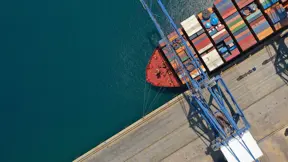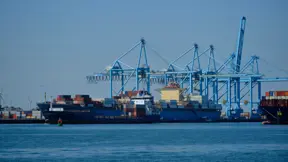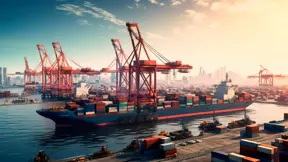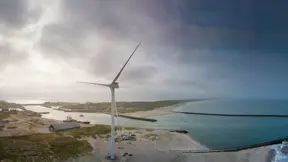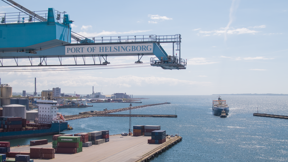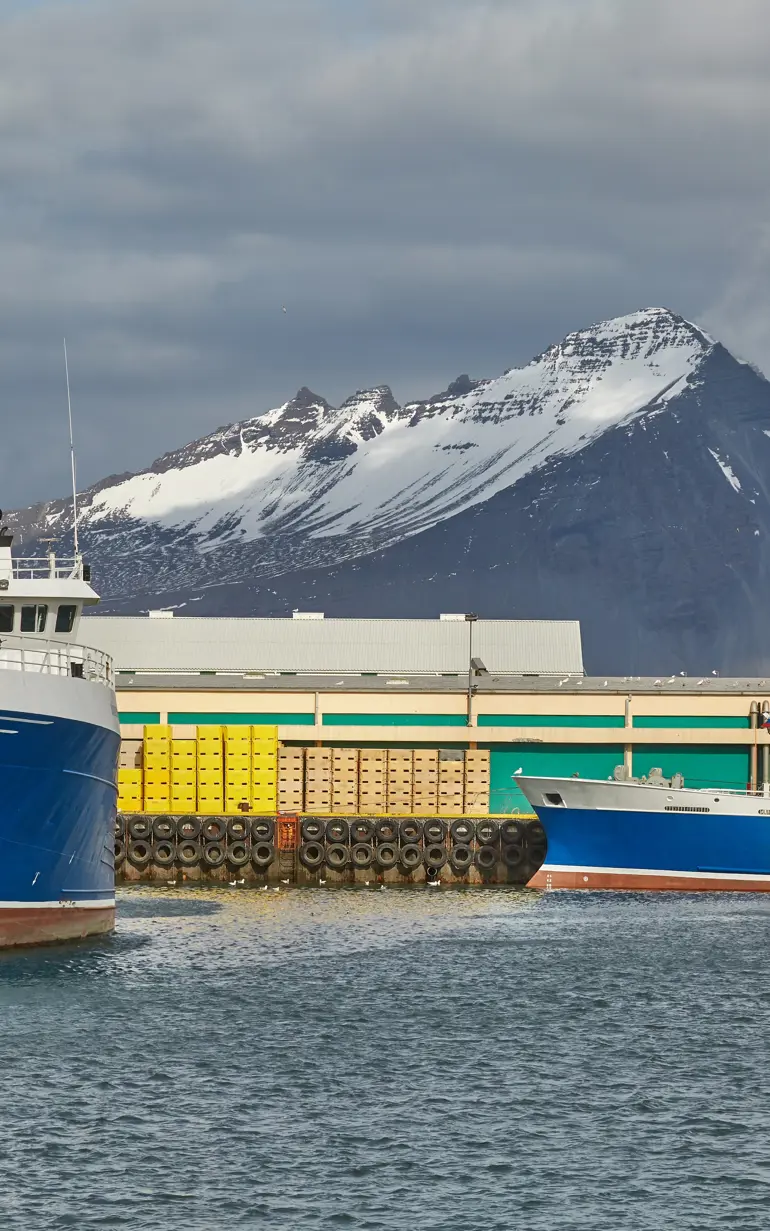
Safe passage through an ebb shoal in Iceland’s harsh wave climate
Improving navigational safety with targeted channel optimisation and structural feasibility studies
Höfn, on Iceland’s southeast coast, is one of the vital hubs of the country’s fishing industry where an expansion of the fishery capacities is anticipated in the future. However, vessels must navigate an exposed ebb shoal, and with larger vessels, a navigational channel is needed to ensure passage of vessels with a larger draught. In addition to this, the navigational operations are in harsh wave climates and shifting sediment with potential backfill of navigational channels. This pose risks to safe access for larger vessels. To ensure long-term operability, the Icelandic Road and Coastal Administration (IRCA) invited DHI to explore solutions for improving navigational conditions. DHI used a model-based approach to optimise the navigational channel and to assess the feasibility of supporting coastal structures, ultimately improving access for fishery vessels through this challenging coastal zone.
Challenge
If larger vessel types are introduced in the future, the harbour fleet will face the dual challenge of navigating safely and reliably while operating in one of Iceland’s most dynamic coastal environments.
A key concern was the ebb shoal at the entrance to Höfn harbour, where strong tidal currents and shifting sediment frequently limit navigability. To address this, alternative dredging strategies needed to be analysed with the aim of improving year-round operability without incurring excessive maintenance or costs. In addition, the feasibility and potential benefits of introducing new coastal or navigational structures, such as breakwaters or guiding walls, needed to be evaluated to enhance both safety and long-term channel stability.
Understanding and addressing these challenges was essential for the safe passage of larger vessels, thereby supporting the region’s vital fishing industry and ensuring economic growth to meet anticipated market demand.
Solution
To tackle the complex conditions at Höfn’s ebb shoal, DHI delivered an integrated, model-driven approach. Central to the solution was a coupled wave, current and sediment transport model that accurately represented interactions between wave dynamics, tidal flows and sediment movement of the ebb shoal and adjacent coastlines. This model offered a clear understanding of sediment transport patterns and their impact on navigability, particularly during extreme winter conditions.
Using this modelling framework, DHI evaluated a range of navigational channel layouts and estimated backfill volumes associated with each option. This enabled the identification of dredging strategies that would be both effective and sustainable, minimising downtime and maintenance requirements and potential environmental disruption.
Based on the findings for the navigational channel on the open coast, DHI assessed the feasibility of various supporting structural interventions, to determine how they would perform under extreme wave and current conditions. The goal was to enhance year-round vessel operability without compromising safety or stability.
Client:
Vegagerdin / The Icelandic Road and Coastal Administration (IRCA)
Location:
Iceland
Related SDG(s):
SDG 13: Take urgent action to combat climate change and its impacts
SDG 14: Conserve and sustainably use the oceans, seas and marine resources for sustainable development
Technology:
Results
The study provided IRCA with a solid foundation for decision-making, balancing performance, cost-effectiveness and long-term resilience. By integrating environmental (shoreline erosion) and operational factors, the study offered actionable insights into improving access for fishery vessels through Iceland’s challenging coastal zone.
A key outcome was the ability to define more accurate weather and keel clearance windows, enhancing navigational safety and enabling more predictable vessel operations, especially in harsh weather. The client now has access to site-specific data, supporting informed decisions on the feasibility and design of potential new structures.
About our client
The Icelandic Road and Coastal Administration (IRCA) is responsible for the planning, development, and maintenance of Iceland’s road and coastal infrastructure. The agency ensures the safety and efficiency of transportation routes, supporting key industries like fishing. IRCA focuses on enhancing infrastructure resilience in Iceland’s challenging natural environment, leveraging innovative solutions and long-term planning to maintain safe, sustainable access to vital coastal and road networks across the country.
You may also like
How can we help?
With our global network of offices, we make sure you get the right answers to your local needs. Tell us about your water challenges and we will get back to you.
